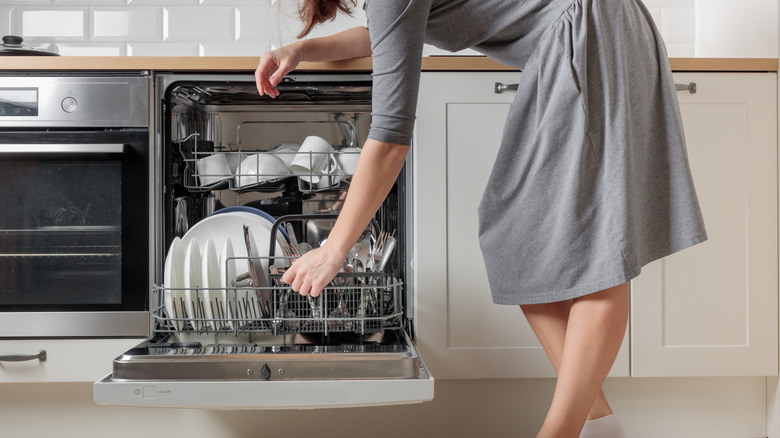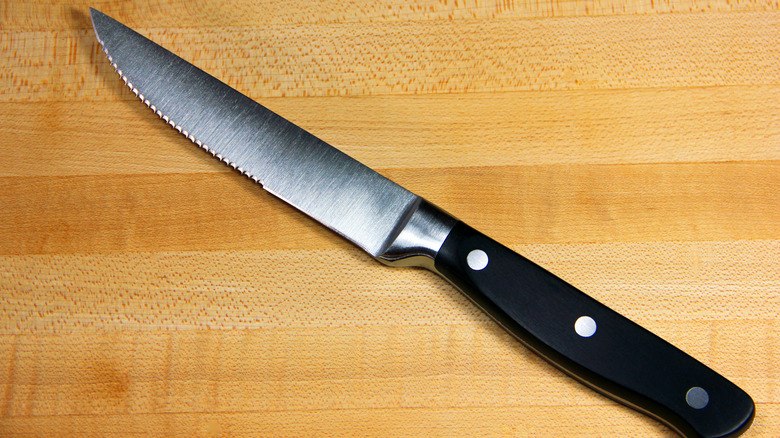The Expensive Kitchen Essential That Should Never Go In The Dishwasher – Here's Why
We may receive a commission on purchases made from links.
So you just wrapped up a perfect steak dinner. The meat was juicy, and the sides were on point. Then, the reality hits. There's a mountain of dishes staring back at you. The dishwasher seems like a shortcut here; all you need to do is toss everything in and hit "Start" to get those plates sparkling again. But hold your horses. Before you put every utensil into that machine, know that there's one costly kitchen item you shouldn't put in the dishwasher, and that's your premium steak knives.
Steak knives don't really thrive under intense wash cycles. The heat and powerful jets will gradually wear down the blade, while some detergents chip away at any protective coatings. This leaves your knives vulnerable to recurring rust, especially if they linger in a damp dishwasher until you get a chance to put them away. Wooden handles aren't safe either. Constant exposure to hot water can make them crack. Even a small bump against another utensil could nick the edge. And before you know it, that smooth glide through a perfectly cooked steak becomes a thing of the past. In short, tossing your prized steak knives in the dishwasher may undo all that careful craftsmanship in no time.
Essential wash and care tips for your premium steak knives
We get it, life happens, and sometimes dishes pile up. But those acidic or salty leftovers can easily corrode your precious steak knife blades. So, a quick rinse after dinner goes a long way in keeping them rust-free. When it comes to washing, go for hand washing only. Use warm water, a soft sponge, and a dish soap that's non-acidic and chlorine-free. Warm water gently loosens food particles, while a foam sponge protects the blade from scratches as you wipe it down.
If you notice any stubborn stains, resist the urge to grab steel wool. Instead, make a paste by mixing baking soda with water. Gently rub it on the stained area. Baking soda is mildly abrasive in just the right way. It'll lift the stains without threatening the blade's integrity. Once washed, use a paper towel or clean, soft cloth to give each blade a thorough wipe. Remember that drying is the most important part of cleaning your knives, because even a little lingering moisture can invite rust or mess with the handle.
To go the extra mile with your maintenance efforts, consider rubbing a light layer of oil, such as Mevell Food-Grade Mineral Oil, along the blade's edges. It'll protect the blades against humidity and help your knives glide through dinner like they rolled off the factory line. Finally, never pile your high-quality steak knives in a drawer. Loose knives tend to bang against other utensils, which may take the life out of the blade long before its time. A dedicated knife block like the RedCall 8-Slot Steak Knife Block Holder is a safe knife storage solution.

